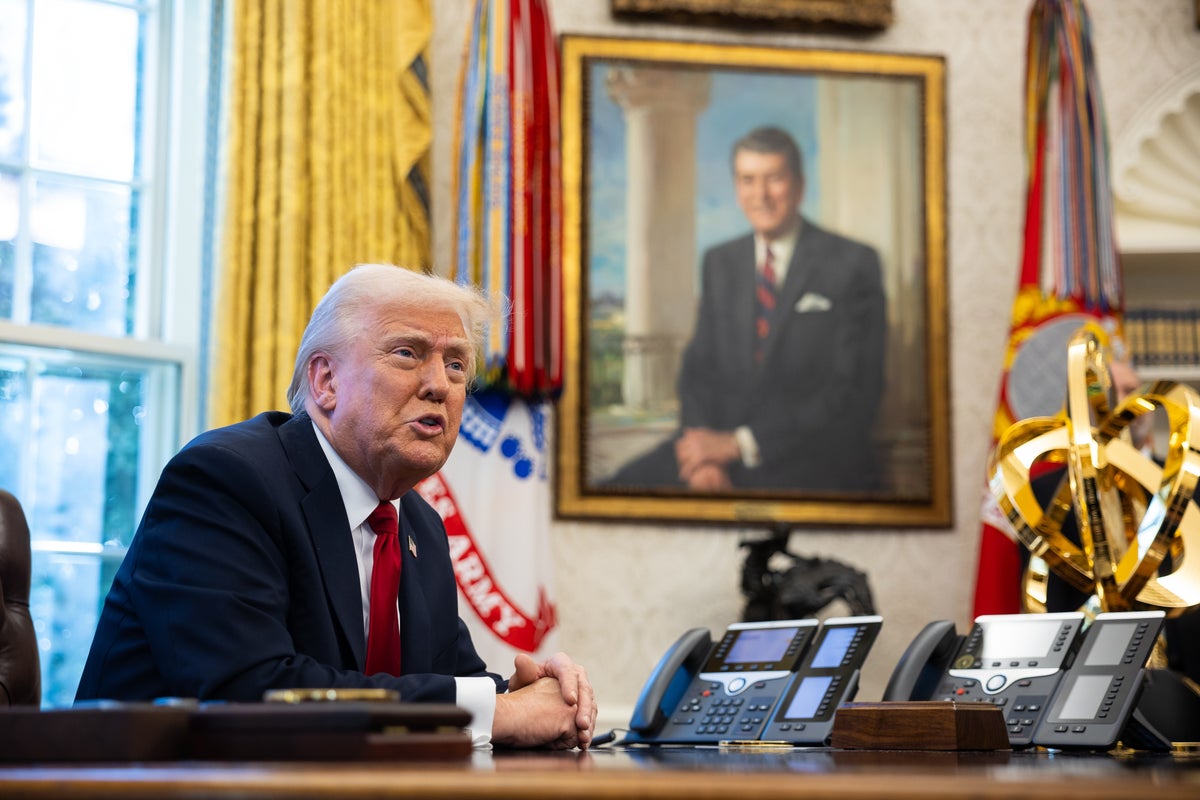Summary
Trump warned automakers not to raise prices after announcing a 25% tariff on imported vehicles starting April 3, claiming the tariffs would be “great” and benefit U.S. manufacturing.
Industry leaders, including GM, Ford, and Stellantis CEOs, expressed concerns about inevitable price increases, with experts warning tariffs could add thousands to car costs.
Auto suppliers stated that absorbing tariffs is impossible, and dealers fear affordability challenges for consumers.
While the United Auto Workers union support the move as a job creator, trade groups predict higher prices and fewer manufacturing jobs.



… until manufacturers go bankrupt
Article only says the UAW, which has more retired members than it does active, and a pathetically small percentage of the active automotive workforce.
I’m not super well versed in “healthy union demographics”, but a quick wikipedia perusal says the three largest US unions (National education association, service employee international union, and the american federation of state, county, and municipal employees) have between 2-15% retirees.
Something tells me the UAW is just led by chuds but what do I know?
I thought that couldn’t be true, but yeah, you’re right. Over 400,000 active members and more than 580,000 retired members. Odd.
Why is that odd? It makes sense that as the automotive industry has increasingly become automated, there would be less of a need for human labor.
And since auto jobs have been exported to Mexico since NAFTA.
And since the auto sector is more than a century old.
The big 3, sure. But there’s many automakers who still do manufacturing in the US- Toyota, VW, Rivian, and Tesla (lol) come to mind. However, they’re also building those plants in the South because of crap labor protections for workers and no unions.
UAW also represents DoD workers, which has a lot of (retired) veterans on it’s roster. I don’t know if that’s skewing the numbers but something to consider.
It seemed odd to me to that Shawn Fain would throw support behind tariffs, but it does make sense in this way: “free-trade” agreements allowed US mftr companies to move manufacturing outside the US, where they could pay employees way less while still charging huge markups while selling inside the us, and the c-suite pockets the surplus. The new tariffs '‘supposedly’ should encourage companies to bring manufacturing jobs back to the states, which is in line with the goals of the UAW - improve working conditions and encourage job growth in the auto sector in the US. So even if the real end result of the tariffs is that companies just continue to overcharge and screw people over and find ways to avoid paying fair wages (which is clearly whats going to happen), the alleged goals of the tariffs are in line with UAW goals…but its still bad optics for Shawn Fain to agree with Trump on anything for a siginificant amount of UAW members, especially since UAW now includes a lot of college/university/education/science sector members as well
Tariffs for Canada and Mexico would only be beneficial for automotive manufactures if A) American manufacturers were not heavily invested in and leveraging factories in Canada and Mexico and B) Canada and/or Mexico had any major auto manufacturers of their own competing with American brands. Neither of those is true. They MAY divest from Canadian or Mexican factories as a result and reinvest in domestic factories. BUT they are going to take big losses for that divesture AND be paying tariffs every time their parts ship between their factories across the borders right now. Their costs are going to go up and Americans will have to pay for the difference there.
You drank some neolib koolaid if you think manufacturers are going bankrupt from this. Auto manufacturing is one of the sectors where jobs have been continually exported to Mexico for lowering labor costs and increasing profit margins. It’s also a sector where there still is a significant manufacturing base in the US and it can be expanded if needed. The real issue is with auto tariffs is parts since those have more diverse sources across borders.
This isn’t the chips manufacturing sector that doesn’t exist in any significant capacity in the US, where increasing tariffs would just increase prices / lower margins without any chance of recourse in the short term.
Thanks for this detailed analysis.
As for my comment, it was from an extremely simplistic reasoning (that you could call borderline dumb but probably not neoliberal 🤣).
My reasoning was that, if their costs goes up (because of tariffs) and they have to sell at the same price, so, making a loss on every sell, eventually, they would go bankrupt.
That doesn’t convey just how insanely complex car-manufacturing supply chains actually are. And the transition to just-in-time manufacturing has meant that stock on hand is kept to a bare minimum, so the impact of disruptions is even greater than it would have been a generation ago.
deleted by creator